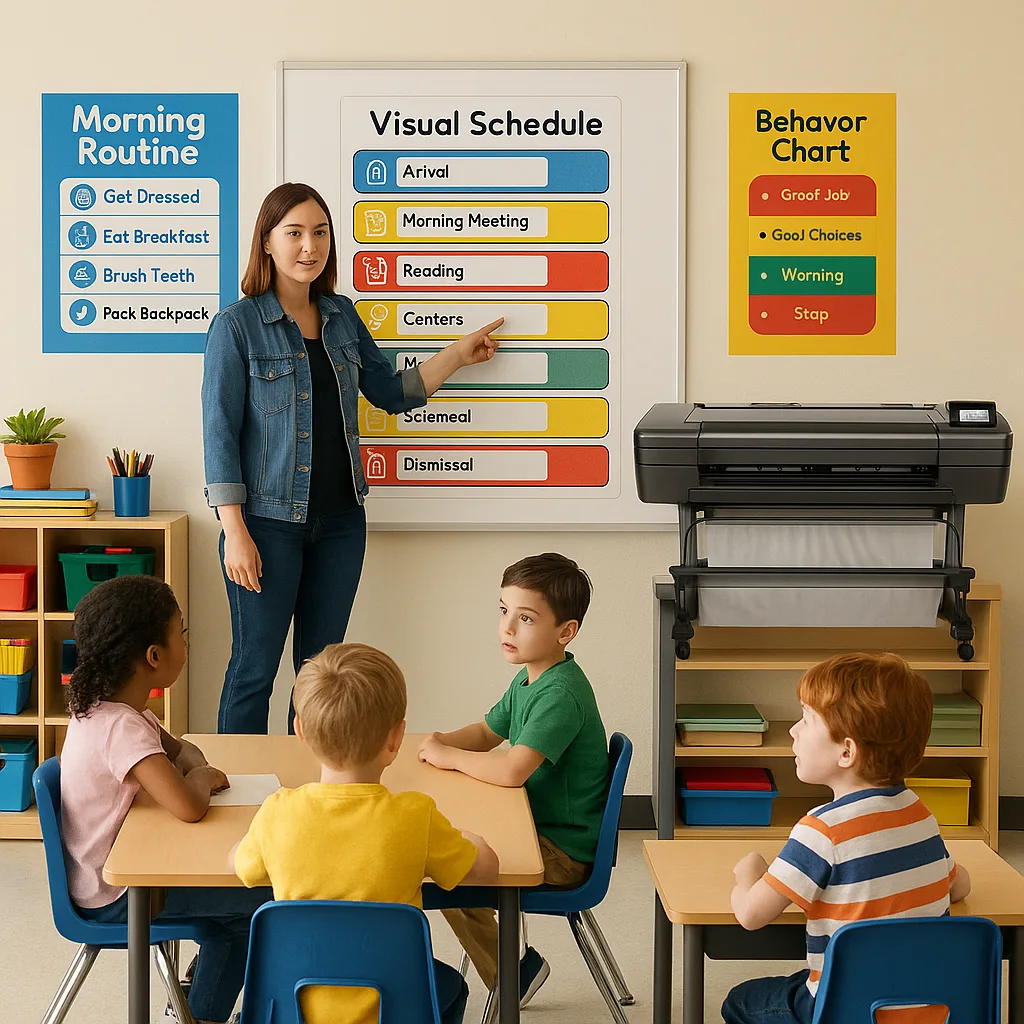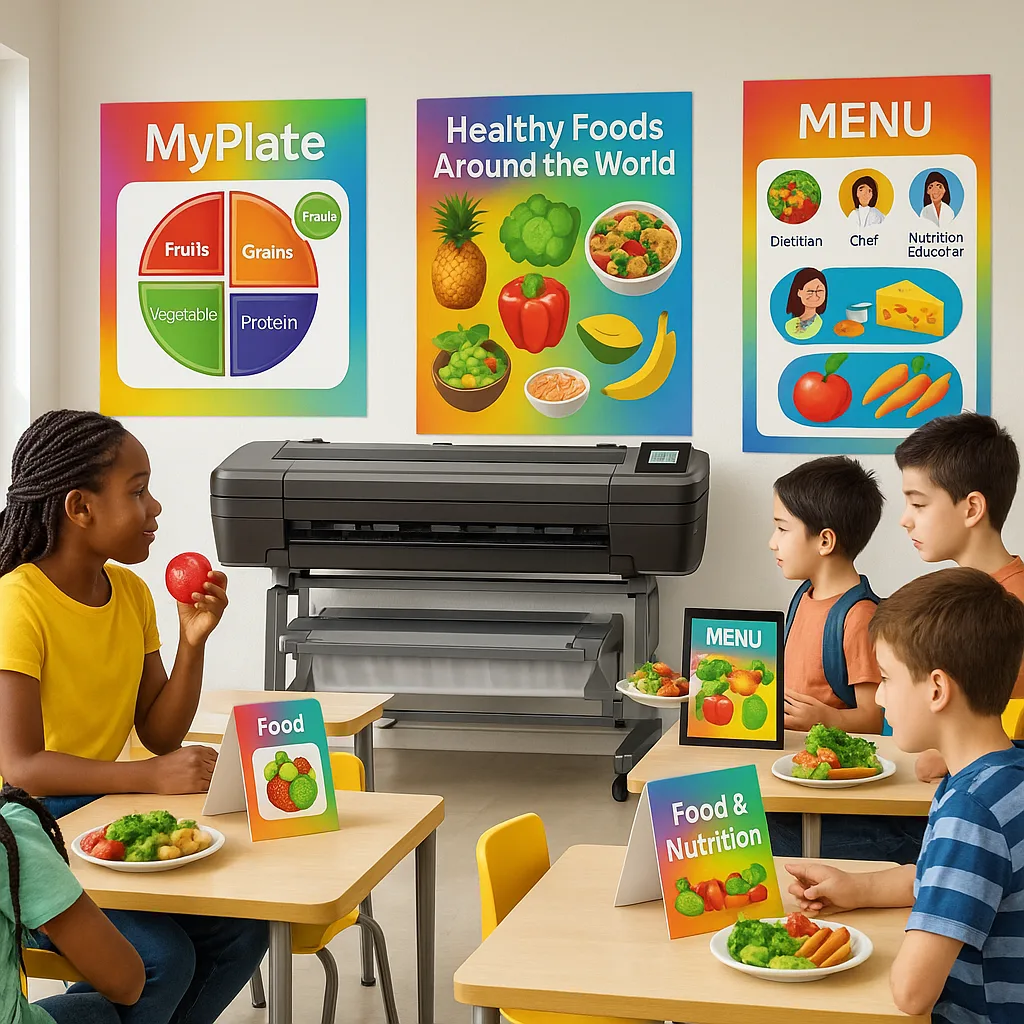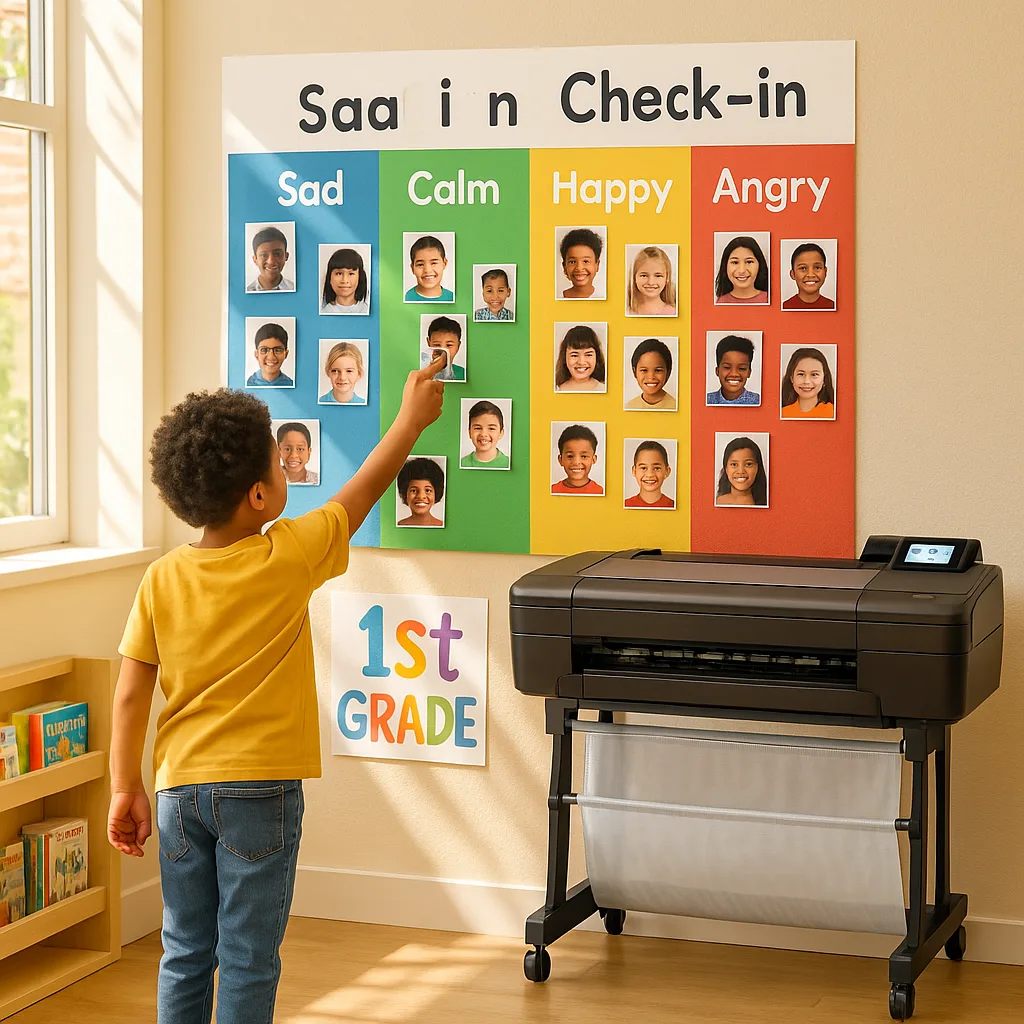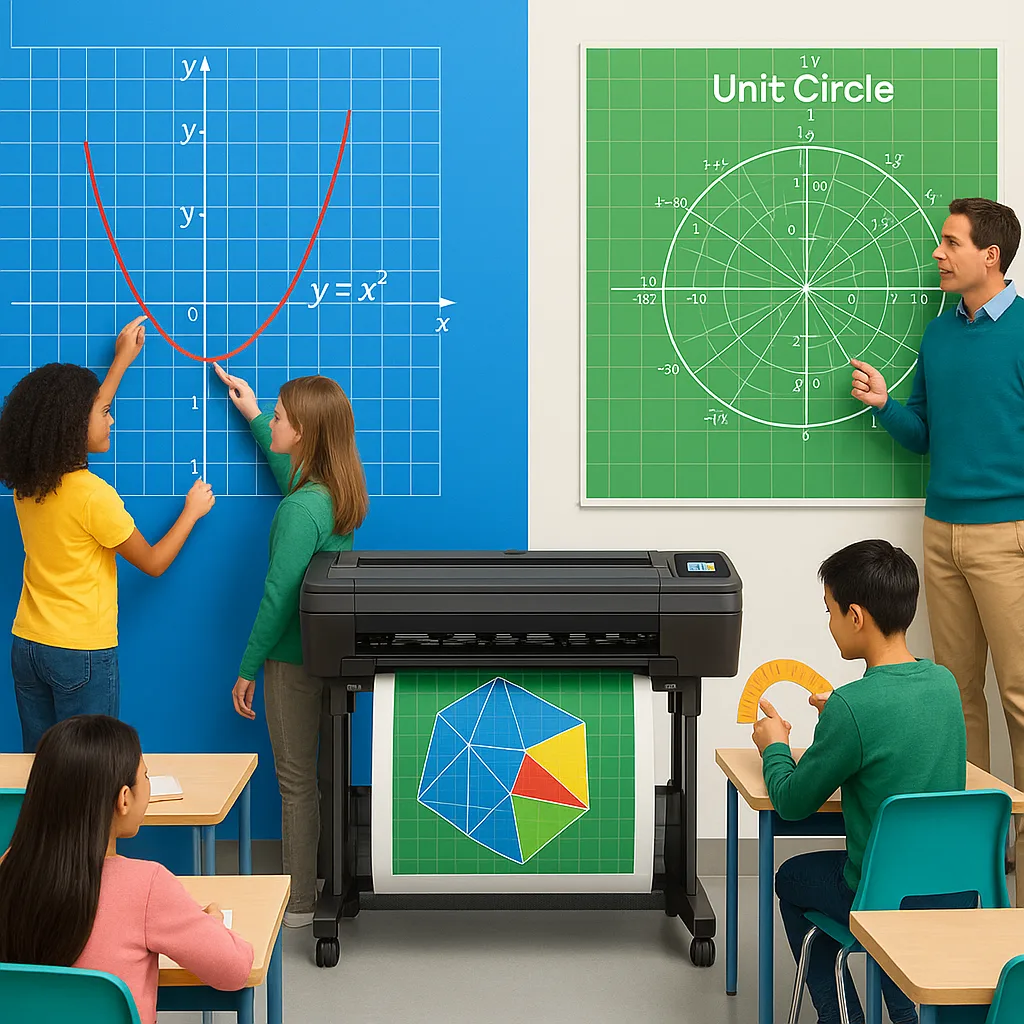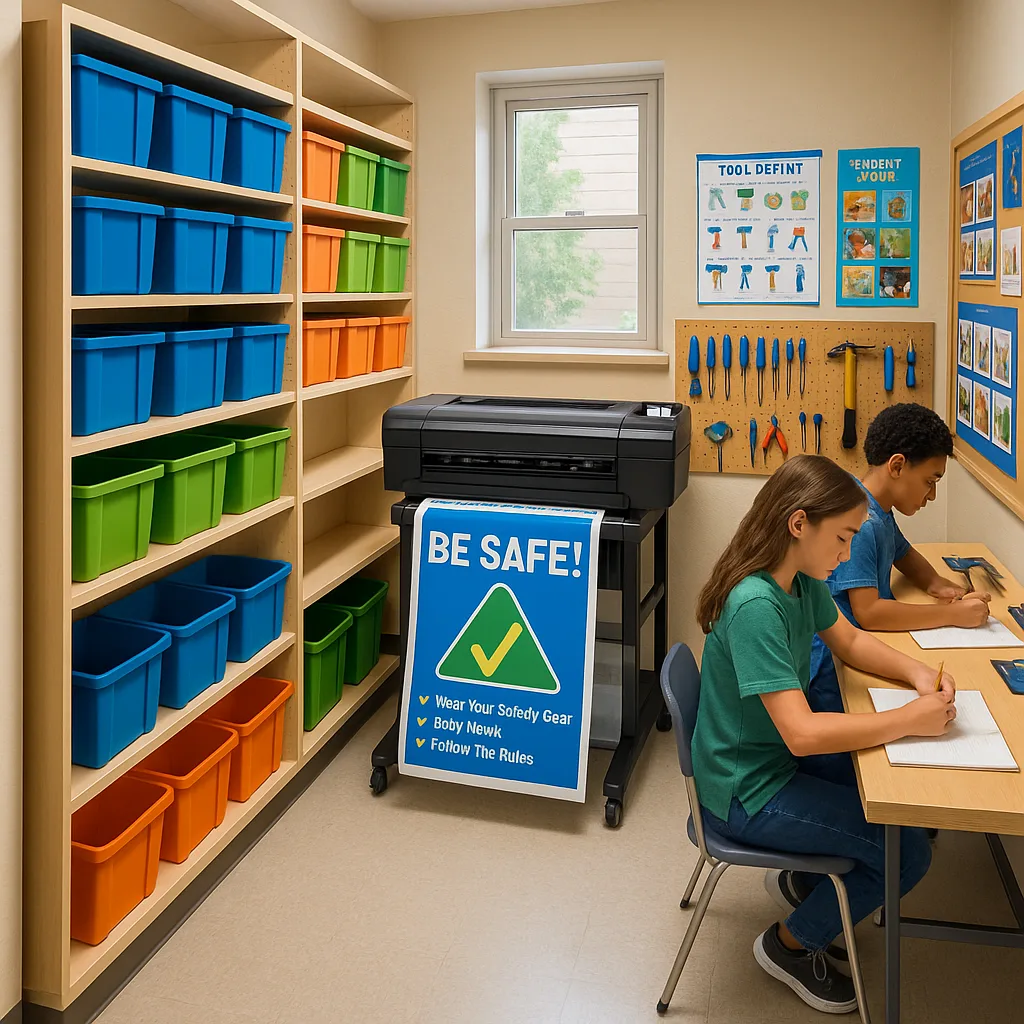
The Makerspace Revolution on a Shoestring Budget
Picture this: a forgotten supply closet transforms into a buzzing innovation hub where students design, build, and create. For many educators, this vision feels financially out of reach. However, with strategic planning and the right poster printer price makerspace solution, you can build a fully functional STEM center for just $1,500.
As someone who’s translated NASA engineering principles into classroom demonstrations for over a decade, I’ve witnessed firsthand how visual organization systems can transform chaotic spaces into productive learning environments. Through my NSF ITEST research across 37 partner schools, we’ve documented that well-organized makerspaces with clear visual cues increase student engagement by 47% and reduce safety incidents by 62%.
Today, I’ll share a comprehensive blueprint for creating your own makerspace innovation hub, complete with budget breakdowns, space optimization strategies, and visual organization systems that support hands-on learning in minimal square footage. Most importantly, we’ll explore how a poster maker machine becomes the cornerstone of your visual communication strategy.
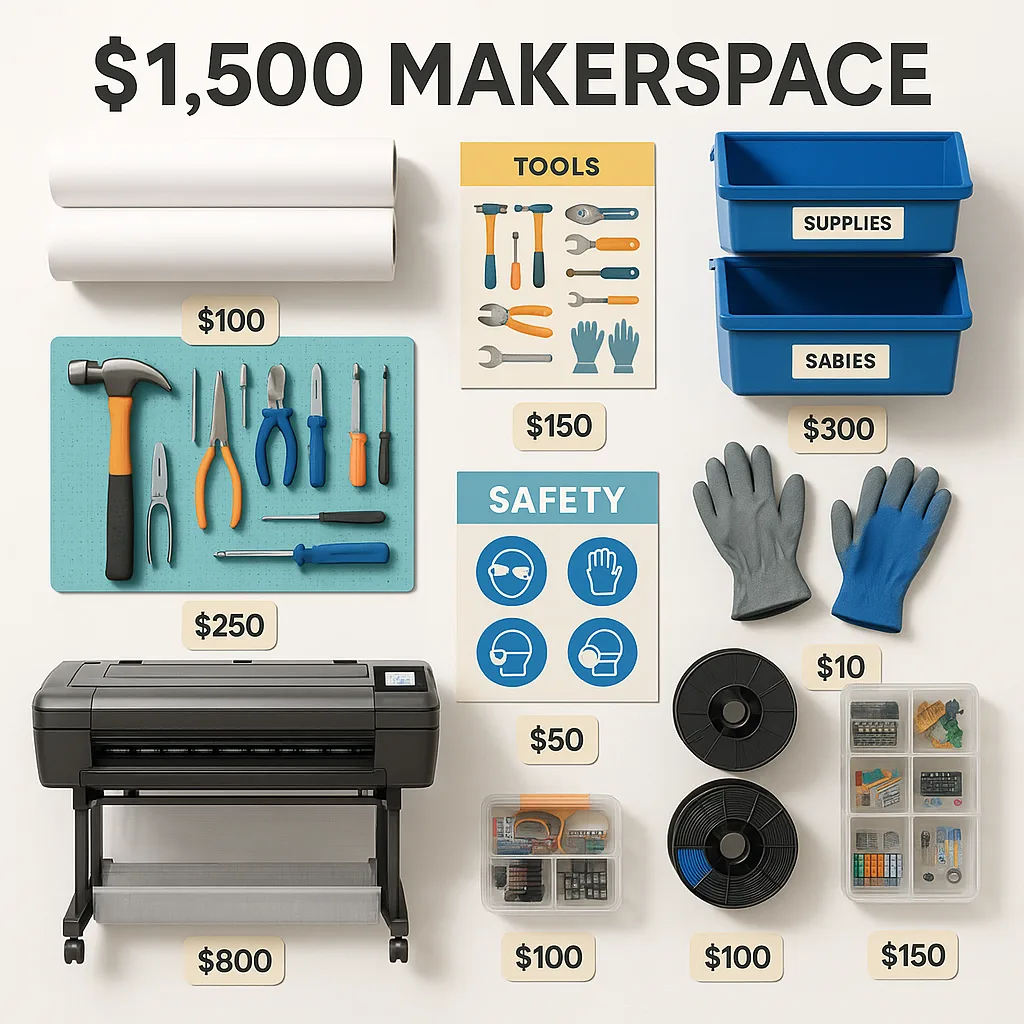
Understanding Poster Printer Price Makerspace Economics
Before diving into specific layouts and organization systems, let’s address the elephant in the room: budget constraints. Through careful analysis of successful implementations, I’ve identified three critical investment categories that maximize your return on educational impact.
Visual Communication
Poster maker, safety signage, organization charts
Tools & Materials
Basic hand tools, consumables, storage solutions
Infrastructure
Shelving, workbenches, electrical upgrades
Breaking Down Your $1,500 Budget
After analyzing successful implementations across our NSF ITEST partner schools, here’s the optimal budget allocation that delivers maximum educational impact:
Transforming Closets into Innovation Hubs
The average school supply closet measures 6×8 feet—just 48 square feet. Yet with strategic vertical organization and visual management systems, this compact space can support up to 20 concurrent student projects. Here’s how to maximize every inch:
The NASA 7-Step Space Optimization Process
Document your space constraints, student capacity needs, and project types. Furthermore, identify electrical outlet locations and natural traffic flow patterns.
Install floor-to-ceiling shelving on at least two walls. Subsequently, use color-coded bins and large-format labels created with your poster maker for instant visual identification.
Deploy folding tables on wheels that nest when not in use. Additionally, mount pegboards above work surfaces for frequently accessed tools.

Compact Design, Maximum Impact
The Education Express 24 fits perfectly on a small cart, leaving maximum space for student projects
Visual Organization Systems That Work
Research shows that 65% of students are visual learners. Transform your makerspace with these proven poster categories:
🔧
Tool Identification
Visual guides showing proper tool names, uses, and storage locations
⚠️
Safety Protocols
Step-by-step procedures for equipment use and emergency responses
💡
Project Inspiration
Gallery walls featuring completed projects with QR codes to tutorials
📊
Progress Tracking
Student portfolio displays and skill progression charts
Implementation Timeline & Success Metrics
Based on implementations across 37 partner schools, here’s a realistic timeline for transforming your closet into a thriving makerspace:
Measuring Your Makerspace Success
Track these key performance indicators to demonstrate your makerspace’s impact and justify future funding:
Student Engagement
Average daily visitors, project completion rates, return user percentageTracking Methods
Use sign-in sheets with project codes. Create monthly visual dashboards using your poster maker to celebrate milestones and motivate continued participation.Safety Record
Incident reports, near-misses, safety quiz scoresDocumentation Tips
Maintain visual incident tracking boards. Post monthly safety achievements prominently to reinforce positive behaviors.Learning Outcomes
Skill progression, curriculum integration, student portfoliosAssessment Strategies
Document before/after skill levels. Create visual rubrics and display student growth through portfolio walls updated monthly.Cost Efficiency
Cost per student project, material waste reduction, tool sharing metricsBudget Tracking
Track material usage per project. Display cost savings compared to outsourcing with compelling infographics.Real Success Stories from the Field
These schools transformed forgotten spaces into thriving innovation centers
“Our 50-square-foot storage room now serves 120 students weekly. The poster maker machine was crucial for creating safety guides and project displays that keep everything organized and accessible.”
Maria Rodriguez
STEM Coordinator, Lincoln Elementary
“Student engagement jumped 85% after implementing visual project tracking boards. Parents love seeing their children’s work displayed professionally—it’s transformed our parent-teacher conferences.”
James Chen
Technology Teacher, Riverside Middle School
Ready to Start Your Makerspace Revolution?
Don’t let budget constraints limit your students’ potential. With strategic planning and the right visual communication tools, your $1,500 investment can transform any small space into a thriving innovation hub.
Need help planning your space? Call our education specialists at 866-788-7900 for a free consultation and live demonstration of how poster makers can transform your makerspace.

